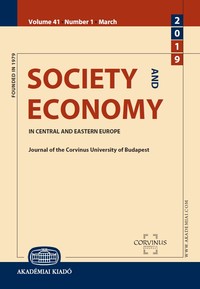Estimating older people's labour supply decisions in Korea
Estimating older people's labour supply decisions in Korea
Author(s): Inhee Lee, Almas HeshmatiSubject(s): Welfare systems, Welfare services
Published by: Akadémiai Kiadó
Keywords: ageing society; public pension; older people labour supply; welfare policy; retirement, Korea
Summary/Abstract: In 2017, Korea became an ‘aged society,’ with the proportion of people aged 65 or older exceeding 14%, while the ratio of the working-age population declined for the first time. This study uses data from the Korean Longitudinal Study of Ageing (KLOSA) to examine the effects of public pension on the labour supply of older people and discusses ways of preparing for this ageing problem. The study uses the Heckman sample selection model for analysing both the extensive and intensive margins of older people's labour supply. Our results show that the effects of public pensions in Korea are very different from that in other countries. It can be inferred that these differences are a consequence of the less developed social security system and limited experience from its short period of implementation. Hence, encouraging older people to work could be a way of solving the problem of relatively high poverty among the older population in a society that is likely to age even more. This is considered an optimal solution in light of increasing life expectancy, a poor social security system, and a decrease in private income transfers from children to their ageing parents.
Journal: Society and Economy. In Central and Eastern Europe ǀ Journal of the Corvinus University of Budapest
- Issue Year: 42/2020
- Issue No: 1
- Page Range: 39-58
- Page Count: 20
- Language: English

